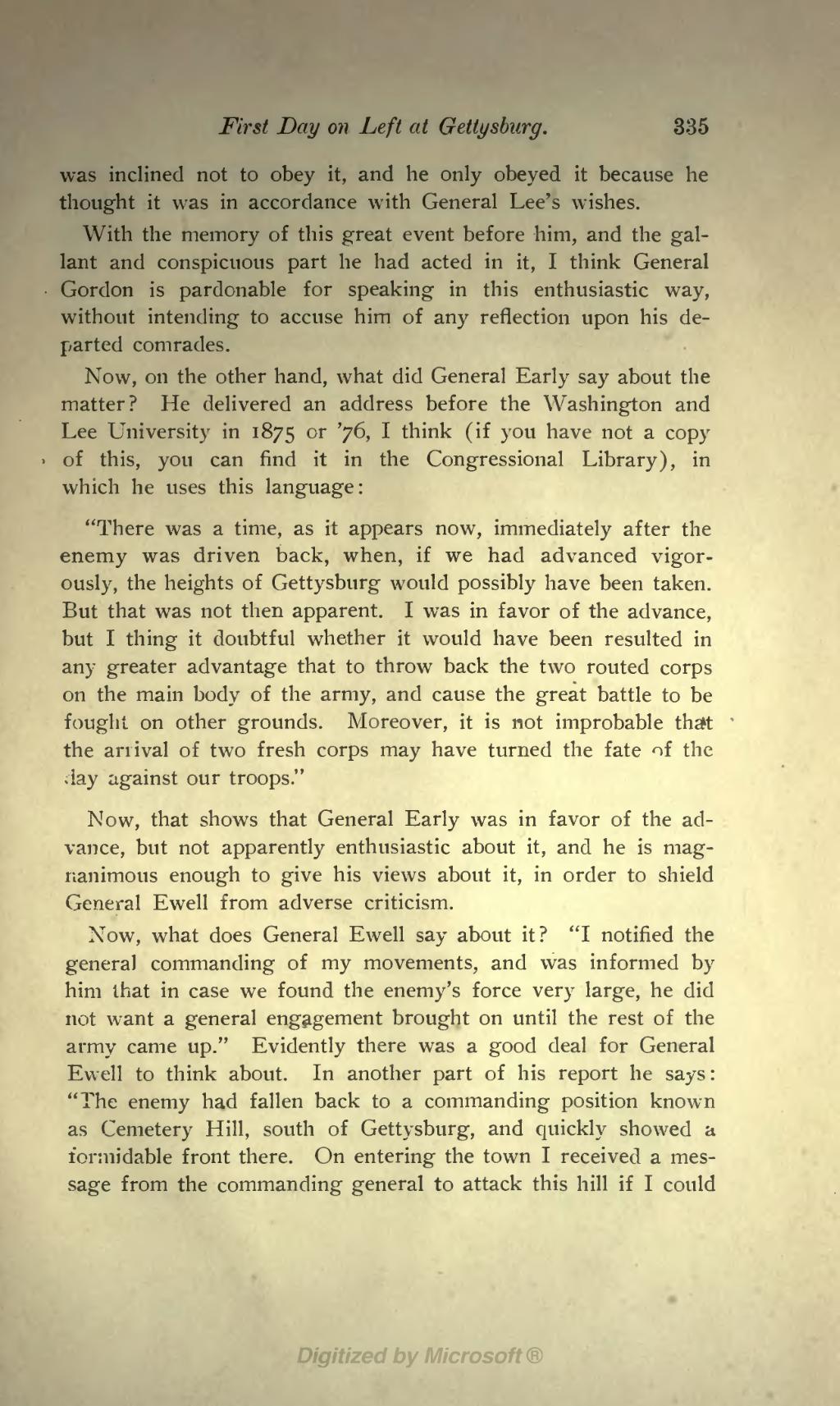was inclined not to obey it, and he only obeyed it because he thought it was in accordance with General Lee's wishes.
With the memory of this great event before him, and the gallant and conspicuous part he had acted in it, I think General Gordon is pardonable for speaking in this enthusiastic way, without intending to accuse him of any reflection upon his departed comrades.
Now, on the other hand, what did General Early say about the matter? He delivered an address before the Washington and Lee University in 1875 or 1876, I think (if you have not a copy of this, you can find it in the Congressional Library), in which he uses this language:
"There was a time, as it appears now, immediately after the enemy was driven back, when, if we had advanced vigorously, the heights of Gettysburg would possibly have been taken. But that was not then apparent. I was in favor of the advance, but I thing it doubtful whether it would have been resulted in any greater advantage that to throw back the two routed corps on the main body of the army, and cause the great battle to be fought on other grounds. Moreover, it is not improbable that the arrival of two fresh corps may have turned the fate of the day against our troops."
Now, that shows that General Early was in favor of the advance, but not apparently enthusiastic about it, and he is magnanimous enough to give his views about it, in order to shield General Ewell from adverse criticism.
Now, what does General Ewell say about it? "I notified the general commanding of my movements, and was informed by him that in case we found the enemy's force very large, he did not want a general engagement brought on until the rest of the army came up." Evidently there was a good deal for General Ewell to think about. In another part of his report he says: "The enemy had fallen back to a commanding position known as Cemetery Hill, south of Gettysburg, and quickly showed a formidable front there. On entering the town I received a message from the commanding general to attack this hill if I could
